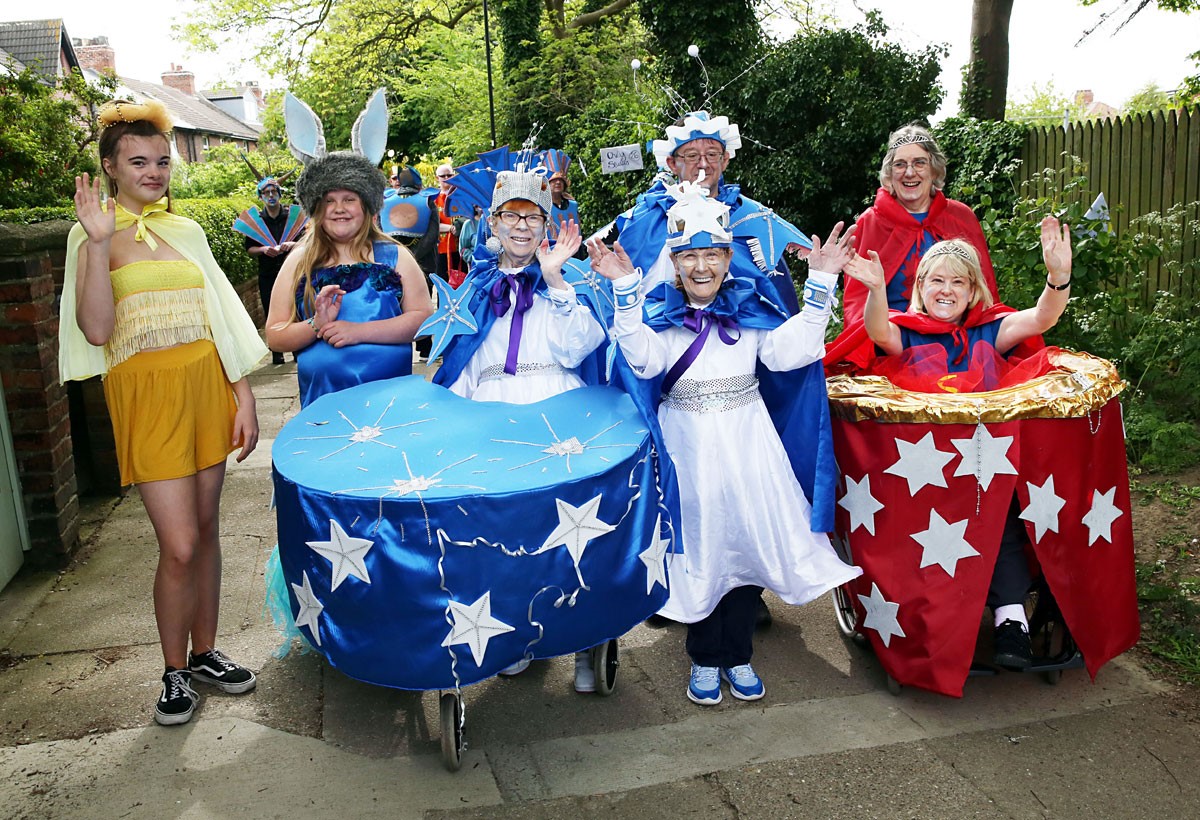
Whitley Bay Big Local & Barnardo’s: Bay Create
Evaluation report from Bay Create, an intergenerational art project which improved wellbeing through creativity and connection.


Bay Create was an intergenerational arts project based in Whitley Bay, bringing together older and younger people from the local area to co-create and participate in arts activities. A partnership between Whitley Bay Big Local and Barnardo’s Whitley Bay, the grant was the final award from the YAP Challenge Fund, awarded by Spirit of 2012’s Youth Advisory Panel before it disbanded in 2021.
Participants included existing service users, local people who required additional support to engage, and those referred from local social prescribing partners and the primary care network. Together they co-designed and led Bay Create, selecting the artists with whom they wished to work and participating in creative projects and activities that explored and reflected on what Whitley Bay means to different generations. The project aimed to: improve participants’ wellbeing; reduce loneliness; improve intergenerational connectedness, and empower participants to make decisions and shape the project.
KEY FINDINGS
Achievements and challenges
A total of 70 people participated regularly in sessions across the project, including 23 who remained involved since the start and contributed to steering the project. Of these, 10% were older people and 53% were 8-25 years old. A further 364 people attended one-off events or sessions.
Participant surveys at the beginning and end of the project demonstrate that the project was successful in improving participants’ wellbeing. Mean wellbeing scores across the ONS4 were much lower than the national average at baseline, but at endline they were close to, or exceeding, the national average. Of the 21 people who answered the question “Do you feel better about your life and future as a result of being part of Bay Create?” 17 (81%) answered ‘yes’, zero said ‘no’ and 4 (19%) answered ‘unsure’.
“Yes − I have enjoyed attending the group, I have met some beautiful souls and it’s lovely that this is here. It’s very social, friendly and I really enjoy the activities that are on offer while having a laugh and chatting. It has helped me feel more confident as far as my ideas on my work and how to go forward with it.” Bay Create participant
Evidence suggests the project helped participants to feel less lonely. The number answering “Often/always” to the question “How often do you feel lonely?” fell from 13% at baseline to 2% at the end of the project. Key to reducing social isolation was providing a welcoming and safe space for people to get together regularly for activities. The opportunities to try new arts activities, work with artists and produce artworks were an incentive to break from the lonely routines that some had found themselves in.
“Yeah – loneliness, it’s nice to come and see friendly happy people and smiles. And my depression – if you have depression this place is like a turntable – if you’re having a bad day you can go one way or another…if you come here, it gives you a task to go on – its why I come here.” Bay Create participant
The project faced challenges in facilitating deep and enduring connections between generations. They received positive feedback when providing opportunities for different age groups to come together, and the project forged relationships between closer age groups, for example 11-year-olds connecting with 17 to 19-year-olds.
There were clear signs that the co-production approach was successful in making participants feel empowered to make decisions on the project, with opportunities to select artists and lead the sessions giving participants a sense of ownership.
Whilst the project faced challenges facilitating inter-generational connectedness, project coordinators learned a lot about what approaches were more successful. This included:
- Catering for different needs: older participants in the project tended to value organised, easily accessible activities, whereas younger participants enjoyed spontaneity and rolling with ideas to pursue their own interests.
- Mixed age groups worked best when people were encouraged to communicate with each other through games and ice breakers. Without this encouragement, participants found it easier to stick to the familiarity of the people they knew and felt comfortable with.
The project maintained a strong commitment to co-design and co-production throughout. Key principles of this included: recognising people as assets; valuing all work that participants do; promoting reciprocity and mutual respect; and building social networks. Participants were involved in selecting the artists with whom they worked, building briefs for them that included the values and potential artists must share with the group, and participating in artist-selection panels. This resulted in feelings of ownership, greater buy-in to the project, and eclectic and vibrant artwork that represents the community. Project managers said: “Participants have shown willingness at every stage to get involved but have needed lots of support to make decisions and preferred to be given options to choose from to define the focus.” Whilst this was a key achievement of the project, it also presented challenges as the added complexity slowed down the project.
Other successful approaches to achieving the outcomes included:
- Focusing on the process rather than the final artworks: “Support should be prioritised over productivity. Person Centred work was at the heart of the whole project.”
- Starting simple. Accessible initial sessions enabled the participants to open up together and become more involved.
- Valuing a non-judgemental and welcoming atmosphere, and prioritising artists’ soft-skills and inclusivity.
- Maintaining a balance between fun and simple activities and those that push participants out of their comfort zone. The former give an important chance to chat and socialise, whereas the latter can increase confidence.
What’s next for Bay Create?
Groups continued to run on a weekly basis after Spirit funding ended. Whitley Bay Big Local has a dedicated regular group of people who enjoy being creative and who are going to continue to meet up with the aim of exploring different art forms. The skills and confidence developed through the project has enabled some members of the group to plan the activities themselves and bring in artists to do one-off sessions before leading further sessions to explore these art forms as a group.

